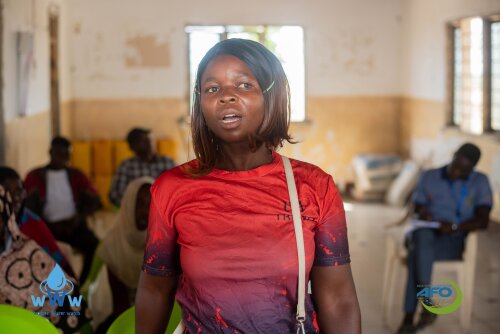WHY?
In Tanzania, women are key actors in the area of water knowledge and management. The burden of water fetching, storing, and treatment responsibilities mostly lie on their shoulders. Women hold valuable water information, but they are often overlooked by community initiatives in water sector policy making, the main hindrance often being a gender power imbalance.

wWw wants to use the citizen science concept to empower women from the vulnerable coastal area communities around Bagamoyo, Tanzania by involving them in water knowledge co-creation and dissemination.
WHAT?
The project engages women throughout the design (identification of the water issues and developing instruments), the data collection & analysis as well as in the dissemination phases.
For sharing the results, the project uses various innovative tools (games, songs, flags, radio, open source data portals, murals, ...) to communicate the findings to various stakeholders.
Co-creating with women can positively impact their knowledge on water issues, access to information but also their skills, confidence, and networks. wWw aims to increase women's voice in water resource management and represents an opportunity for communities to rethink gender relations.
Finally, we aim to use the collected data to produce scientific publications about the project’s results acknowledging the contribution of the women monitor teams.
WHO?
Women Water Watch (wWw) is a COESO funded citizen science project, jointly managed by
Aqua-Farms Organization (AFO, Tanzania) and the Institute of Development Policy, University of Antwerp (IOB, Belgium).
Project leaders:
Cretus Joseph (AFO), Nathalie Holvoet (IOB), Sara Dewachter (IOB), Diana Tiholaz (IOB)
Institutions & affiliations
Project partner: Institute of Development Policy (IOB) | University of Antwerp | Belgium |
Project partner: Aqua-Farms Organization (AFO)| Dar Es Salaam, Tanzania |
Funding agency: COESO| European Union |